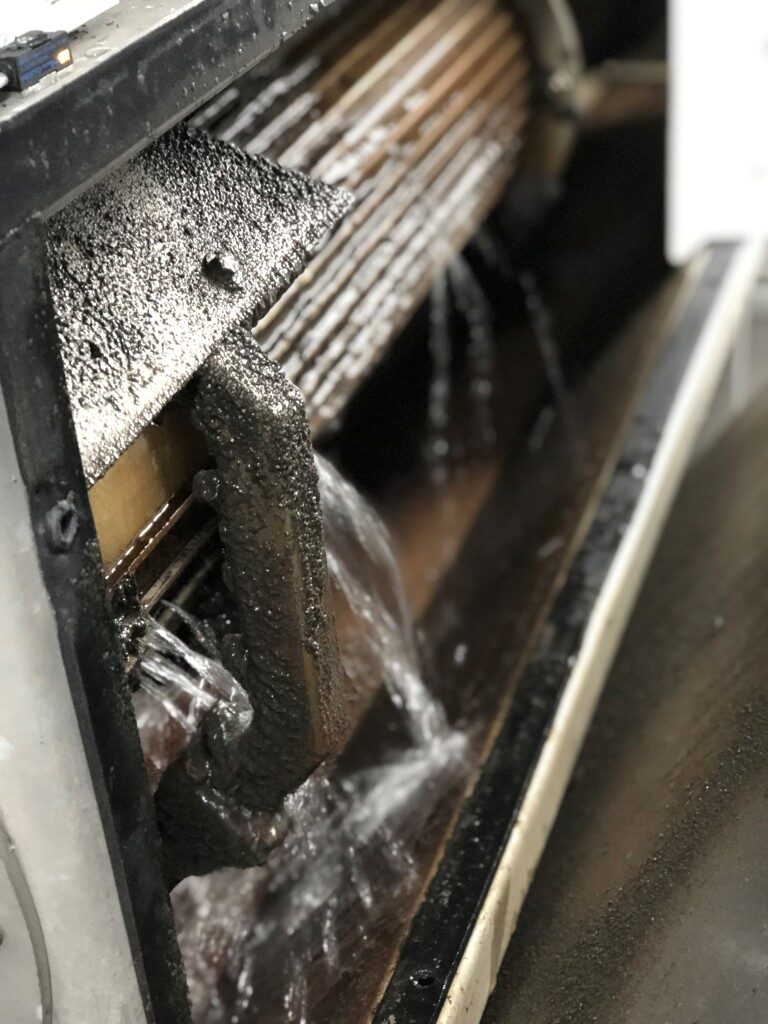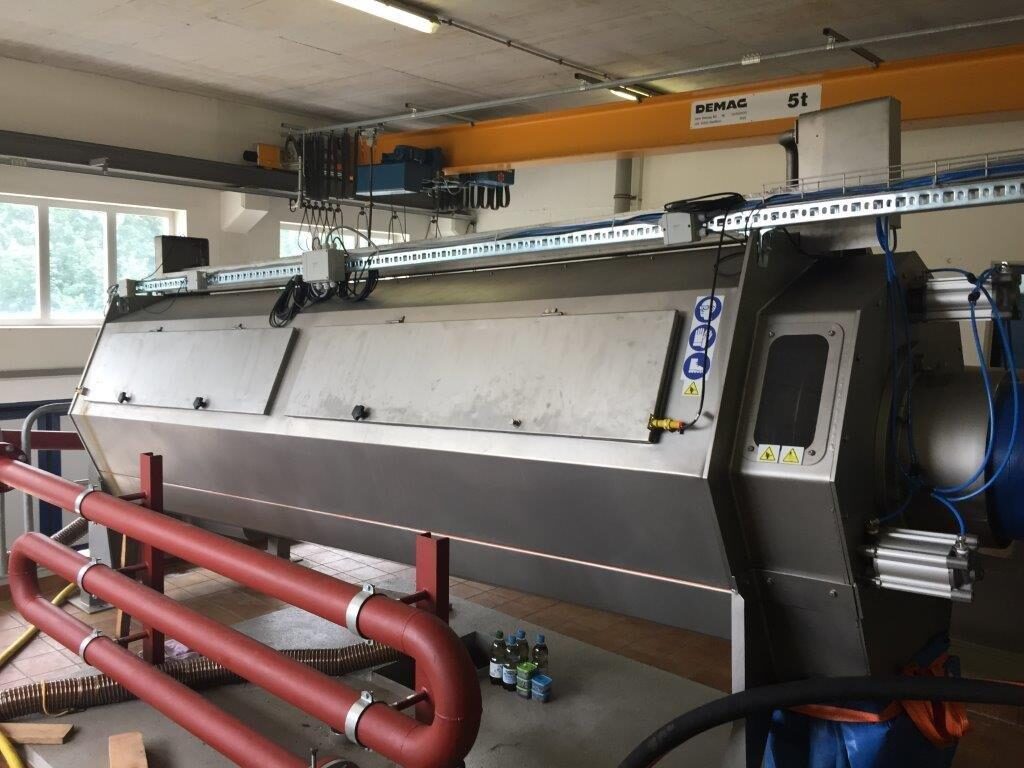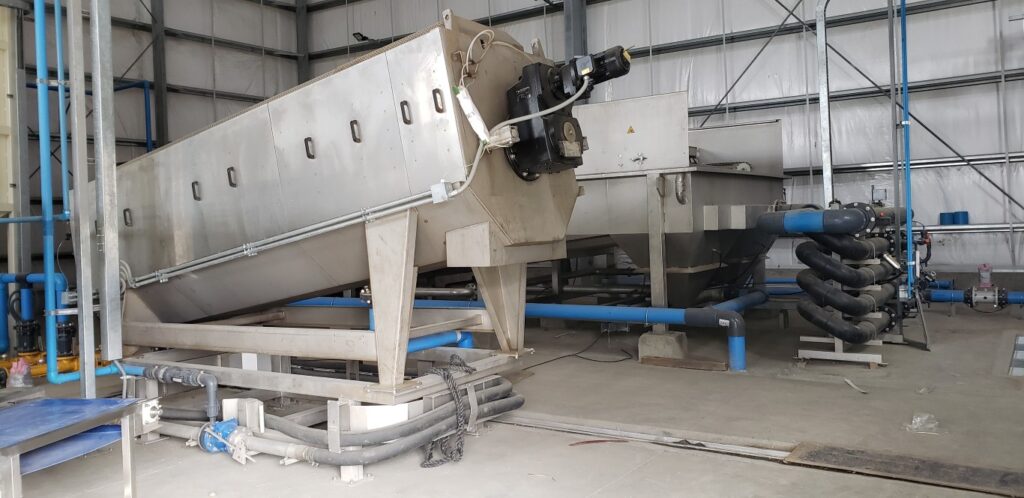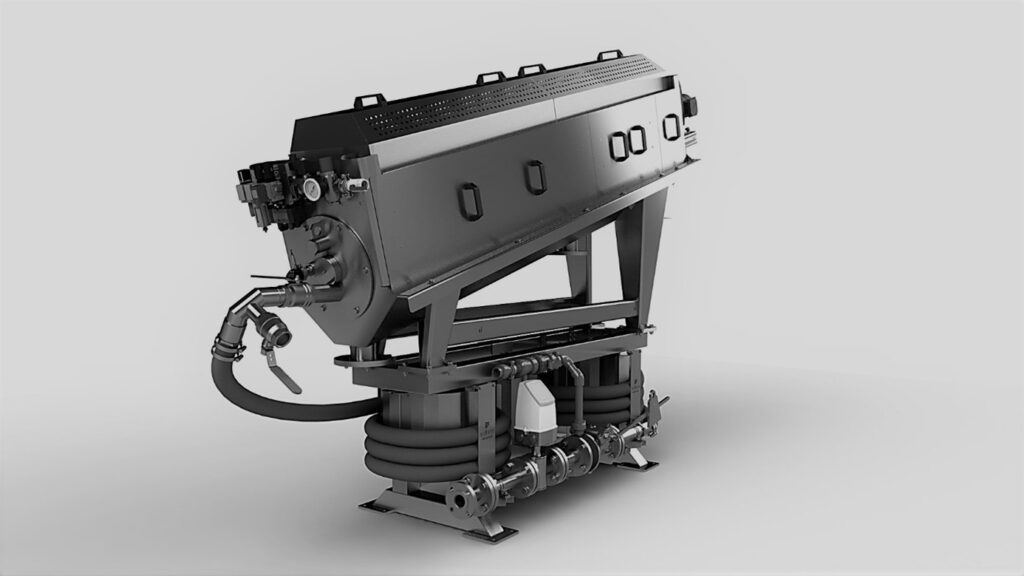Your challenges

High sludge volumes and disposal costs
Many industries face the issue of high sludge generation, leading to expensive disposal and handling. Without effective dewatering, transportation and landfill costs can escalate rapidly, putting financial strain on operations.
Inconsistent dewatering performance
Fluctuations in sludge composition often result in unstable dewatering outcomes. This can reduce operational efficiency and create unpredictability in sludge cake dryness and filtrate quality
Energy consumption and operational costs
Conventional sludge treatment systems can be energy-intensive, adding to overall operating expenses. Industries are seeking ways to minimize energy usage while maintaining.
Limited space and integration constraints
In facilities with limited space, installing or upgrading sludge treatment systems becomes challenging. Compact, efficient, and flexible solutions are needed to fit within existing infrastructure.
Our sludge wastewater treatment & disposal solutions and how they work
Screw Press – (NSP)
Screw presses are ideal for applications requiring compact, energy-efficient equipment. They apply a slow-moving mechanical force to extract water from treating sludge, resulting in reliable performance, low maintenance, and reduced operational noise.
Drum Filter (NDF)
The cloth drum filter is an inside fed screen with a perforated drum covered by a cloth, specially designed for dewatering excess sludge up to 6% dry solids or as solid and liquid separation for manure.
Decanter Centrifuges
Our decanters deliver continuous, high-efficiency dewatering by separating solids from liquids using centrifugal force. They handle varying sludge types and volumes, ensuring a consistent and dry sludge cake with minimal operator intervention.
Belt thickener
In the continuous sludge belt thickener, the water drains through a moving polyester filtering belt, separating the solids in the sludge from the filtrate. The use of special plows improves the drainage by alternately compressing, reversing and distributing the sludge on the belt.
Beltpress
The dewatering characteristics of sludge can vary greatly, depending different variables. Mineral sludge and fibre-rich sludge behave, for example, quite differently from organic/biological sludges, in terms of dewatering properties, but also in terms of abrasiveness.

Customer benefits

Reduced disposal and transport costs
By significantly decreasing sludge volume through effective dewatering, our solutions help reduce waste handling, transport, and landfill expenses.
Consistent dewatering results
Our technologies maintain high performance even with variable sludge compositions, ensuring predictable output and simplified downstream processing.
Lower energy and maintenance costs
Both decanters and screw presses are designed for energy efficiency and long-term durability. This translates to lower operating expenses and reduced equipment downtime.
Easy integration and compact design
Our systems are built for space-limited environments and can be easily integrated into existing treatment plants, minimizing the need for major infrastructure changes.
Compliance with environmental regulations
With improved solids capture rates and reduced wastewater volumes, our sludge treatment systems support regulatory compliance and environmental sustainability goals.
Sludge dewatering product-line highlights:

- Food & Beverage
- Fish processing
- Pulp & Paper
- Energy
Screw press – NSP
- Industrial water
Frequently Asked Questions (FAQ)
What type of sludge can your equipment handle?
Our decanters and screw presses are engineered to handle a wide variety of sludge types, including industrial, municipal, and biological sludge, regardless of their solid content.
How do I know which solution is right for my facility?
We perform detailed sludge analysis and site assessments to recommend the most suitable dewatering solution based on your specific needs, space, and performance targets.
Can your systems be retrofitted into existing wastewater treatment plants?
Yes, both decanters and screw presses are designed for easy integration and can often be installed with minimal modifications to your current setup.